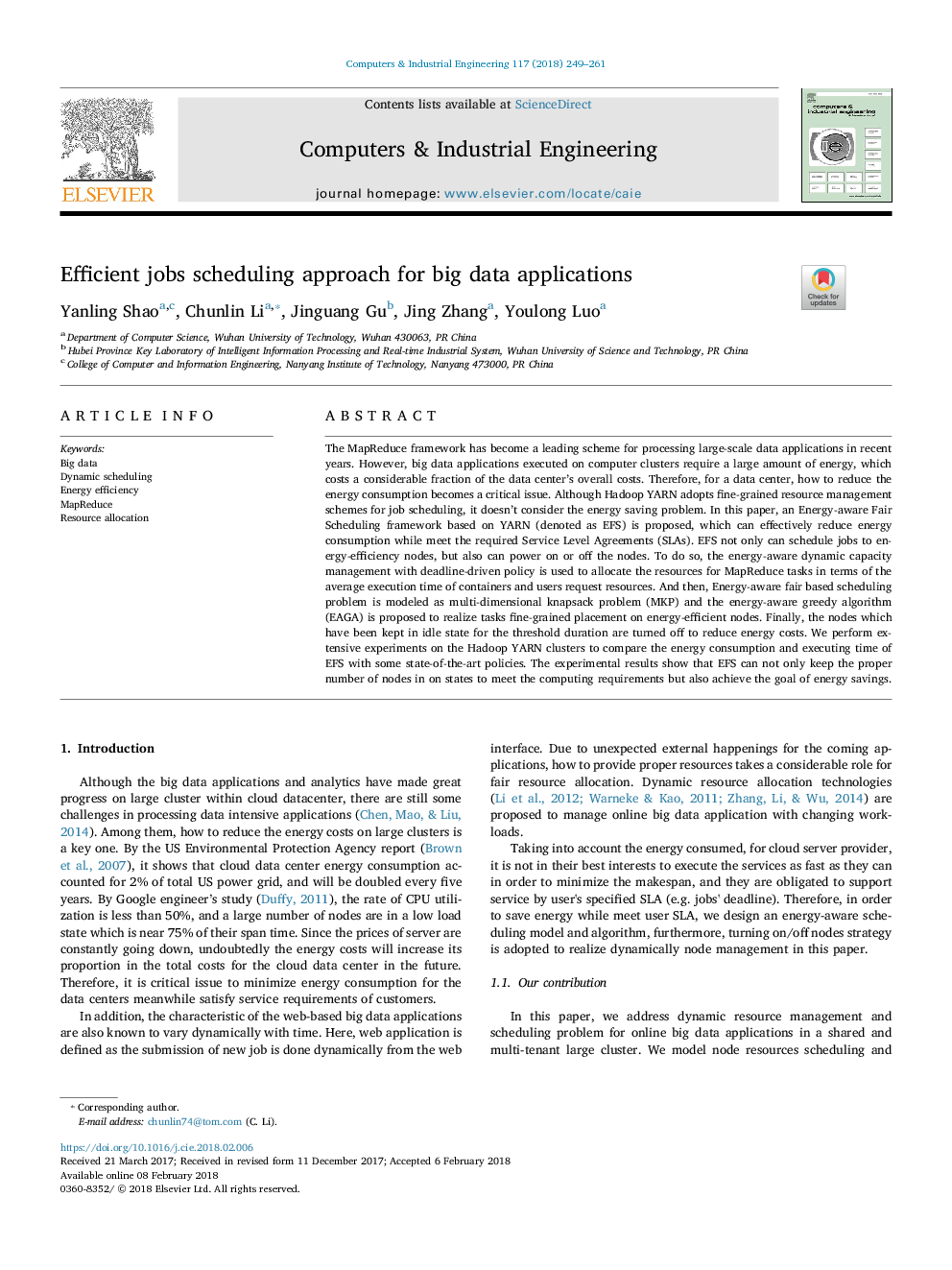ترجمه فارسی عنوان مقاله
رویکرد برنامه ریزی شغلی کارآمد برای داده های بزرگ
عنوان انگلیسی
Efficient jobs scheduling approach for big data applications
| کد مقاله | سال انتشار | تعداد صفحات مقاله انگلیسی |
|---|---|---|
| 95229 | 2018 | 13 صفحه PDF |
منبع

Publisher : Elsevier - Science Direct (الزویر - ساینس دایرکت)
Journal : Computers & Industrial Engineering, Volume 117, March 2018, Pages 249-261

